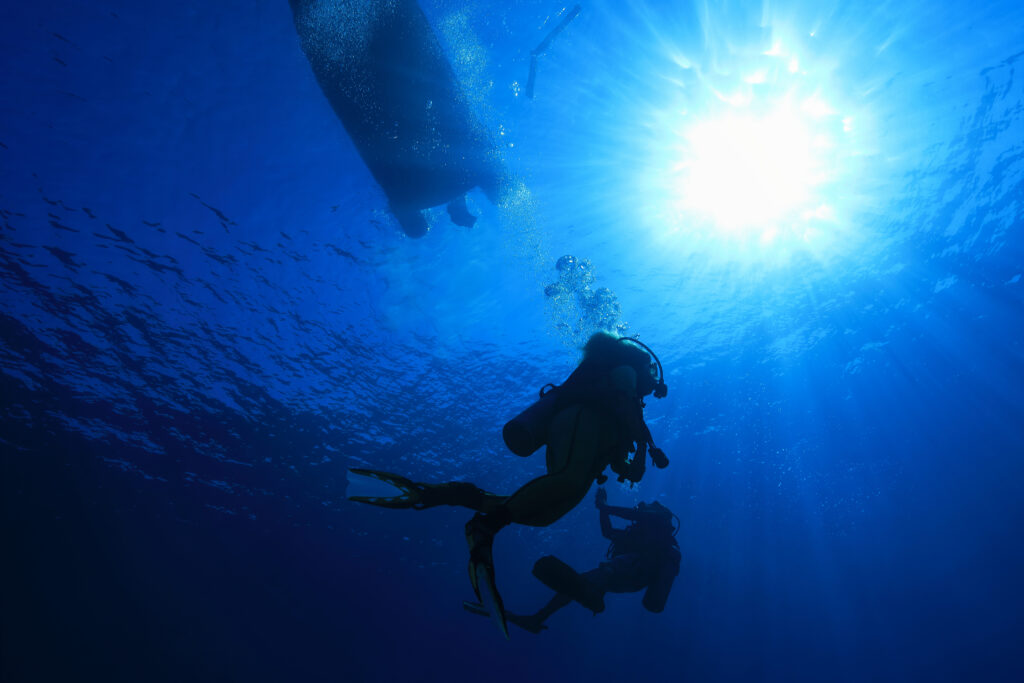
SCUBA diving as a recreational activity has increased in the last 10-15 years. There has also been an increase in SCUBA diving accidents within the early 2010s. This number lowered during the pandemic from 2020 to 2022. With an increase in activity, SCUBA deaths have recently increased this start of Spring. SCUBA diving deaths are relatively low compared to the number of divers around the United States. Divers Alert Network notes 80-100 divers die a year in North America. The last statistic on SCUBA deaths in 2015 was 1.8 deaths for every million. While SCUBA-related deaths are low, increasing awareness in the SCUBA community places divers on alert. Every diver can lower their risks with preventative measures.
Proper Gear Maintenance and Usage
Purchase high-quality gear that is fitted specifically for you. Here are areas where you cannot afford to overlook proper gear usage.
- Your SCUBA mask needs to seal out moisture before you ever enter the water. Purchase and test the mask before attending an open ocean dive. The seal must be fully closed. If your mask leaks the slightest amount of water, have a seasoned dive instructor see if you need to work on your seal or a different SCUBA mask.
- Make sure your fins fit correctly. Otherwise, you will lose them and struggle to swim towards the boat.
- Buoyancy control devices (BCD) regulate your ability to sink and float. This piece of equipment can affect your tanks, wetsuit, and mask. You want your BCD to fit closely, but not so tightly that it'll squish your body when it inflates. Test your BCD with a PADI instructor in a swimming pool before you attend a dive. You do not want to float too close to the surface. You need to stay well below boats that may pass by.
- Ensure all tubes, hoses, straps, and gauges are secured tightly against your body. It is easy for loose items to catch between rocks or boat propellers.
Proper Practices
- Never dive without a buddy. Diving alone puts you at risk. You need someone who can assist you in a medical emergency and warn you of nearby dangers.
- Practice and always recertify CPR/First Aid. You will need to learn CPR and first aid before you dive. Your dive buddy should also have updated CPR/First Aid training. Practice CPR and first aid regularly to prepare for the worst.
- Avoid boating accidents by staying alert underwater and checking BCDs beforehand. Dive Training recommends someone is aboard your boat in case you find yourself diving in the open ocean. Be aware of the shipping lanes, vessels, and other large machinery.
- Avoid areas with riptides or currents if possible.
- Use caution when entering caves or confined spaces.
- Private boats should only have experienced divers on board.
- Avoid touching or approaching venomous or predatory animals.
- Check all of your equipment before setting sail for a dive.
- Equalize your ears and mask. Your instructor or another PADI-certified diver can assist you.
Health and Safety
There are regular health practices that divers should take to prevent life-threatening complications. Divers need to cope with the pressure deepwater dives place on your body. Here are some health and safety tips to lessen bodily strain.
- Keep your physical fitness in shape. Regularly swim, practice breathing, and participate in cardio for peak health. Weight training is optimal so you can gain familiarity with your body under different levels of pressure.
- If you have sinus congestion or migraines, postpone your dive.
- If you feel ill after a dive, visit a local emergency room or urgent care to rule out any life-threatening complications.
- Use a dive computer to stay within a dive table and avoid decompression sickness.
- Familydoctor.org advises to hold off flying 12 hours after diving and 24 hours if your dive has decompression stops.
Your health and safety are a priority. If you or a fellow diver are ever in an emergency, call the Divers Alert Network emergency line. Their website has a list of emergency phone numbers for different locations worldwide. Checking in with a fellow PADI instructor for more safety concerns is recommended before your first dive. Diving is at one's own risk. Tread the water with caution.
By The Shore SCUBA Instruction LLC. is a SCUBA school located in North Carolina. We acknowledge that the information provided is no guarantee of safety. SCUBA diving is an at-risk activity and requires proper PADI instruction and other safety training. We accept no responsibility for death, injury, or damaged equipment. By The Shore SCUBA Instruction LLC. is not medically trained. You should consult your doctor for all safety suggestions. Our information comes from sources online that claim SCUBA knowledge and experience.
These sources are listed below.
Divers Alert Network (dan.org)
Encanto grandfather killed in a diving accident in Hawaii (10news.com)





